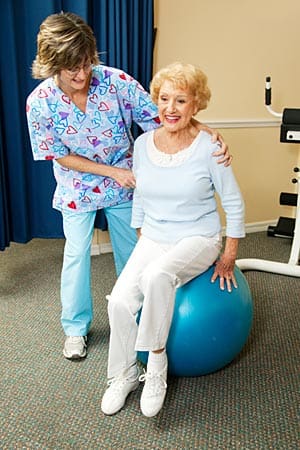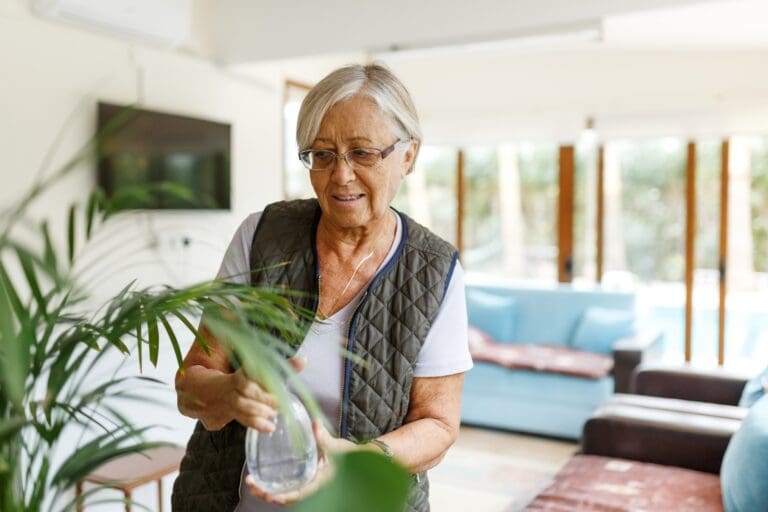You might be surprised to know that you can be classed as a ‘long distance carer’ while only living one hour away from your loved one. In the greater Los Angeles area this distance is not uncommon. In fact, approximately 5 to 7 million Americans are long-distance caregivers in the US, and this is expected to double in the next 15 years.
What Is Involved In Long Distance Caregiving?
Long-distance caregiving can involve a parent, friend or other family member. Some things you’ll need to consider include finances, emotional and physical support along with medical care and social support.
Getting on top of this can not only significantly help your loved one, but also you the caregiver as well. It requires regular communication and careful planning, taking into account this: the needs and wishes of the patient should be at the forefront of all decisions regarding care.
Despite the expected challenges of caring long-distance, there are ways to make things easier both for yourself and for your loved one.
Understand Your Loved One’s Medical & Personal Needs
Knowledge is power and ensuring you have as much as much information as possible at your fingertips, can aid in preparing, planning and managing care for a loved one.
This includes information on their illnesses, medicines and any resources that are available. Having this knowledge and discussing them at length can help you stay on top of a preventable crisis.
Get Organized: Create an Information File
Making sure all paperwork is gathered together and well-organized can be a big help. Caregiving often involves a lot of information and keeping this in order and up-to-date can go a long way. Although initially this may be time consuming, it will pay-off in the long term.
The caregiving file can include information such as:
- Patient health and medical overview including medications taken and doses
- Contact info for entire healthcare providers involved
- Insurance information and medical cards
- Legal documents & records
Under certain circumstances and with your loved one’s agreement you can also include:
- Home ownership information
- Financial documents
- Account numbers
It can be useful to keep a folder, whether online or off, of all important information. Having this information together also helps you to respond more quickly if there is a crisis.
Create a List of Local Resources
Start collecting resources for additional help and advice in your local area. A quick google search will often deliver what you need. It may also prove worth checking in with a local library or senior center or using the search tool on the Area Agency on Aging.
Plan Visits & Make Them Count
It can be tempting to just focus on ‘tasks’ when visiting your loved one. Try to make time to do things unrelated to being a caregiver such as cards, board games or watching a movie. Some may like to attend religious services. Take a drive, or go to the library together.
Check in Regularly
If you’re not able to visit in-person, consider helping with setup of a smartphone or tablet that connects with the touch of a button to Skype, WhatsApp and FaceTime. This technology can become extremely meaningful once the basics are reviewed.
Spend some time teaching them the chosen communication device and ensuring they know how to use it. Tools like Amazon Alexa are great too, since they are voice-activated. There are plenty of devices designed for seniors including phones with larger buttons and ones compatible hearing aids.
Prepare for an Emergency
Try to think ahead and ask yourself what you would do if your loved one had an emergency. It’s good to keep a note of local contacts who can be available at short notice.
It can be useful to create a single page summary to have with you as well as a list of prescriptions, allergies and medical history.
At a minimum, be prepared with the following:
- Set money aside to travel to your loved one’s home
- Local contacts such as neighbors or other family & friends who can visit and help with very short notice
- Numbers of medical professionals, easily on hand
- List of medications
Embrace Safety Technology
There are plenty of emergency and fall detection devices including watches and necklaces that can help your loved one create an alert in case of a fall or some other issue.
Consider also, if they were to be taken into a hospital for an extended period, are their financial payments such as bills on autopay? Prepare these things in advance where possible.
Have a Local Contact
It can be incredibly helpful to have someone who lives in a short vicinity to your loved one such as a neighbor or friend family you can call on at short notice. A simple knock on the door if you are concerned can alleviate worries and help.
Schedule Conference Calls
Conference calls with doctors, social workers and other professionals are a great way to share information and keep caregivers updated on what is happening. Multiple family members and other caregivers can be involved and provided with essential information.
Get Professional Support
Sometimes family or friend support is not enough. Hiring a professional caregiver who can provide your loved one with personal care, companionships, meals and other services might be the best solution for your loved one and you.
If you’re considering caregiving support, contact one of our team members who can talk you through the process on 310-459-3535.








